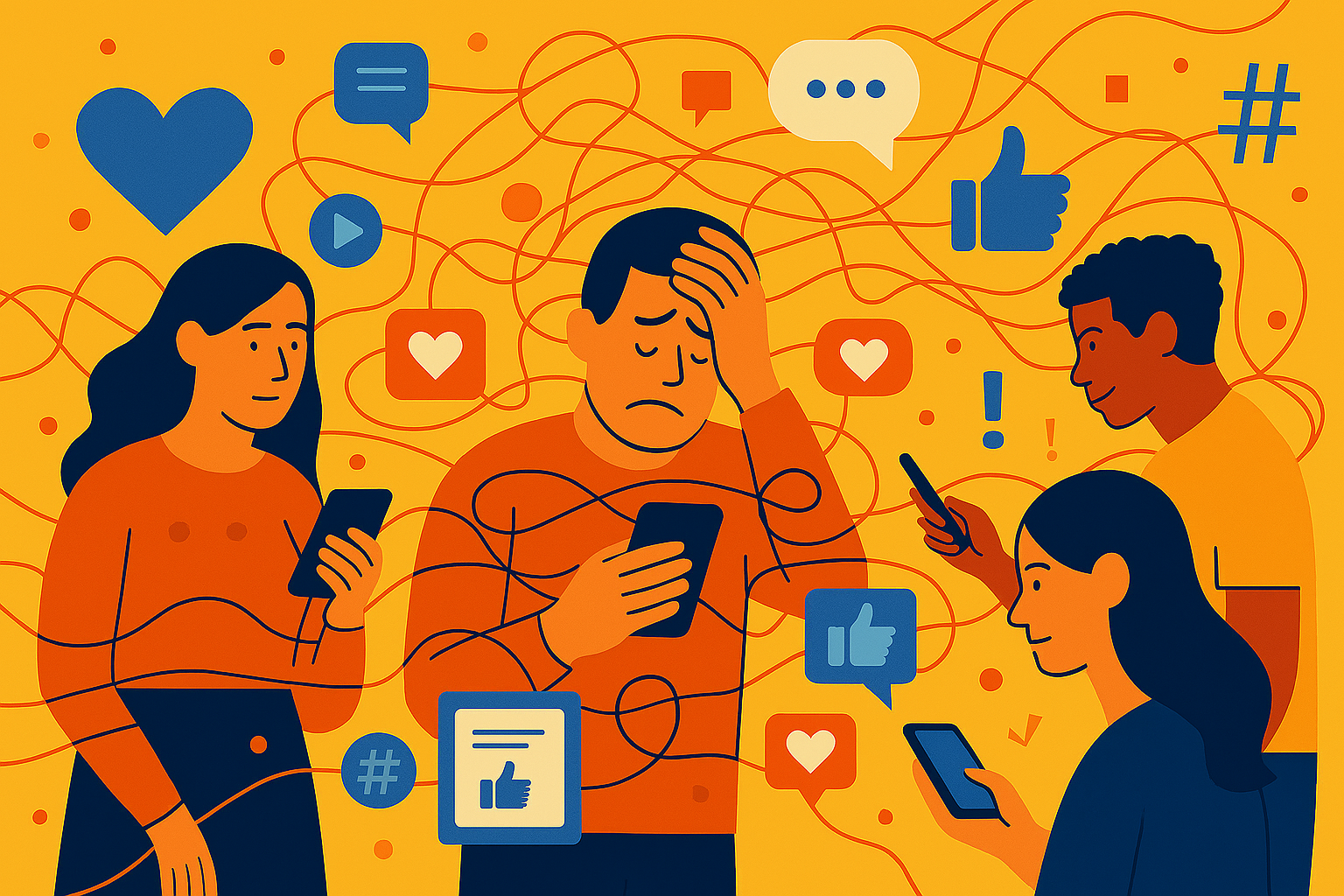
Self-care in the age of social media: a modern survival guide
In an era when we’re more likely to start the day with someone else’s “get ready with me” reel than check in with our own reflection, it’s safe to say self-care has evolved. It’s no longer just about bubble baths and blackout blinds – it’s about how we navigate the hyperconnected universe and emerge relatively unscathed.
With adults in the UK spending an average of four and a half hours online daily, we need to curate our screen time like we curate our playlists: intentionally and ideally with less doomscrolling. Part mindfulness, part maintenance – it’s about drawing boundaries with the algorithm and reclaiming your time in a world designed to keep you tapped in 24/7.
The double-edged scroll
Having community and entertainment at our fingertips can be a lifeline for many of us. But it can also be a labyrinth. As of 2025, around 84.3% of the UK population are active social media users and while these platforms can uplift, connect and inform, they can also isolate, distort and overwhelm.
The makes-you-feel-warm-and-fuzzy bits:
- Connection and belonging. Beyond keeping up with friends and family, social media helps people find communities that offer support, a safe space, and a sense of belonging.
- Mental health awareness. The rise of people sharing their personal stories online has helped destigmatise mental health issues. It’s a space to learn, advocate, and feel seen.
- Access to resources. Therapists, charities, and wellness experts share coping strategies and educational content, making mental health support more visible and accessible*.
- Creative expression and identity. For many, social media offers a space for creativity and self-expression, encouraging people to explore and embrace who they are.
- Humour and distraction. Light-hearted content and memes offer a moment of levity, helping to reduce stress and provide emotional relief, especially during tough times.
The makes-you-want-to-run-for-the-hills bits:
- Social comparison. Curated feeds and filters can fuel feelings of inadequacy, impacting self-worth, and body image.
- Cyberbullying and harassment. Online abuse and trolling can deeply affect mental health. Anonymity emboldens harmful behaviour.
- Addiction and information overload. The constant flood of updates and opinions can be mentally exhausting. Scroll loops and dopamine spikes disrupt sleep and feed anxiety.
- Fear of Missing Out (FOMO). Constant exposure to highlight reels can lead to feelings of exclusion, loneliness, and the pressure to perform.
- Toxic positivity and hustle culture. The oversaturation of influencer content can promote unrealistic lifestyles under the guise of motivation which can invalidate real struggles.
Balancing the impact
So, how do we protect our peace when so much revolves around the social media landscape? Self-care in the digital age requires a thoughtful approach. We can’t go full ghost-mode, but it’s time to unplug with purpose. Here are a few tips to help you scroll smarter:
1. Practice mindful usage. Use social media with purpose not just out of habit. Connect, learn, and LOL, but avoid passive scrolling.
2. Check in with your ‘why’. Before opening that app, ask: “Why now?” Are you bored, procrastinating, or genuinely looking to engage? The answer could help you make better choices.
3. Curate your feed. Follow accounts that inspire and uplift you. Unfollow those that trigger comparison or cause stress and anxiety.
4. Focus on meaningful engagement. It’s easy to get caught up in chasing likes, but digital validation doesn’t always equal real connection. Engage with people who energise and empower you.
5. Set boundaries. Schedule screen breaks. Try tech-free dinners or wind-down rituals. Even uninstalling apps or switching off notifications can offer breathing room.
6. Prioritise offline activities. Balance scrolling with hobbies that don’t require a screen like painting, reading, getting out in nature – whatever brings you back to yourself.
7. Reconnect with mind and body. Tune into physical cues like headaches and restlessness – this can signal screen overload. Movement, breathwork and sleep can help with digital fatigue.
8. Connect IRL. Online communities matter, but face-to-face interactions flood the brain with feel-good chemicals. Don’t forget about your real-world relationships.
9. Find feel-good tech. Some tech can support your wellbeing; think meditation apps and digital detox challenges. Just make sure they’re supporting – not replacing – real-life care.
10. Seek support. If social media’s affecting your wellbeing, talk about it. Others may be quietly struggling too. Share your boundaries, it may help you stick to them.
Self-care in the age of social media isn’t a one-size-fits-all checklist. It’s a constant calibration. It’s learning to spot when connection turns into comparison, when inspiration tips into insecurity, and when scrolling becomes soul-sapping.
*Studies have found that over 80% of mental health advice on TikTok is misleading or oversimplified. It may help you recognise symptoms, but it should never be used as a substitute for professional care.
Post a comment